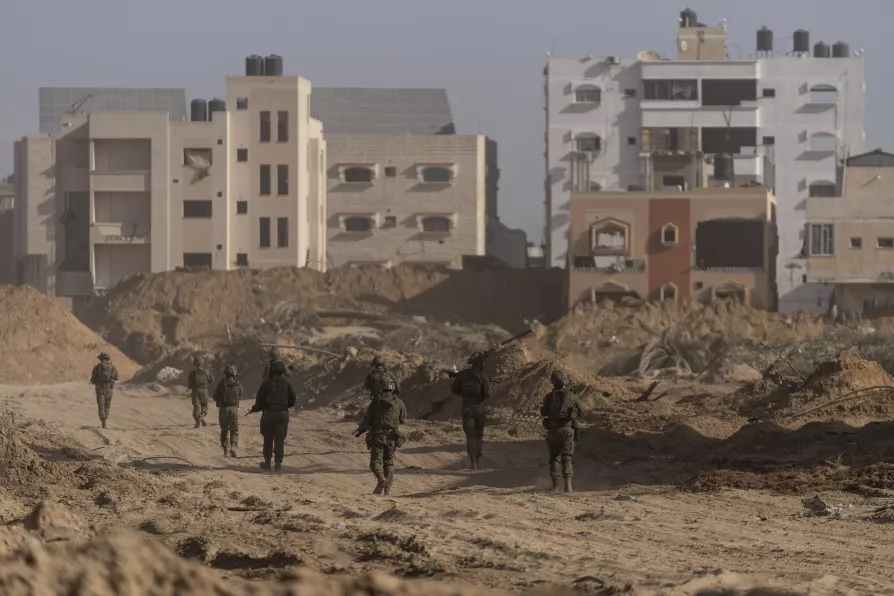With speculation growing about a Labour leadership contest in 2026, only a decisive break with the current direction – on the economy, foreign policy and migrants – can avert disaster and offer a credible alternative, writes DIANE ABBOTT

 Israeli soldiers walk through the destroyed Khan Younis, Gaza Strip, January 10, 2024
Israeli soldiers walk through the destroyed Khan Younis, Gaza Strip, January 10, 2024
HUNDREDS of millions of people across the world have been deeply moved by the atrocity of the Israeli war on Palestine. Millions have attended marches and protests, many of them participating in such manifestations for the first time in their lives.
Social media, in almost all the world’s languages, is saturated with memes and posts about this or that terrible action. Some people focus on the Israeli attack on Palestinian children, others on the illegal targeting of Gaza’s health infrastructure, and yet others point to the annihilation of at least 400 families (more than 10 people in each family killed).
The focus of attention does not seem to be diminishing. Holidays in December went by, but the intensity of the protests and the posts remained steady. No attempt by social media companies to turn the algorithm against the Palestinians succeeded, no attempt to ban the protests — even the display of the Palestinian flag — worked.

Spain has joined South Africa’s ICJ genocide case against Israel while imposing weapons bans and port restrictions, moves partly driven by trade unions — proving just how effectively civil society can reshape government policy, writes RAMZY BAROUD

VIJAY PRASHAD on why the US attack on Iran was illegal and why the attack could actually spur nuclear weapons proliferation












